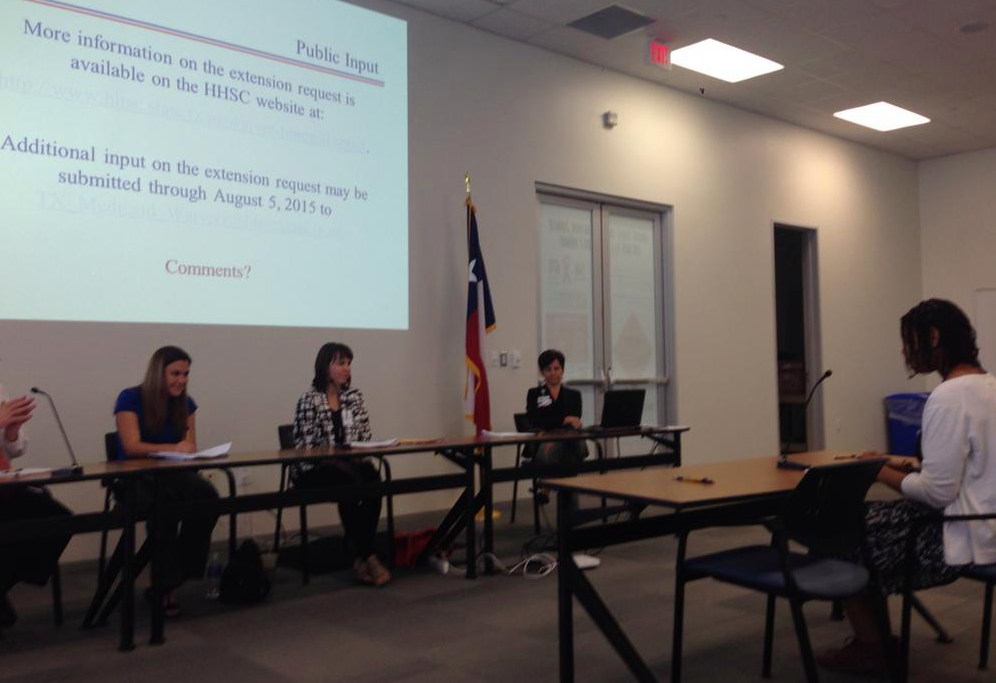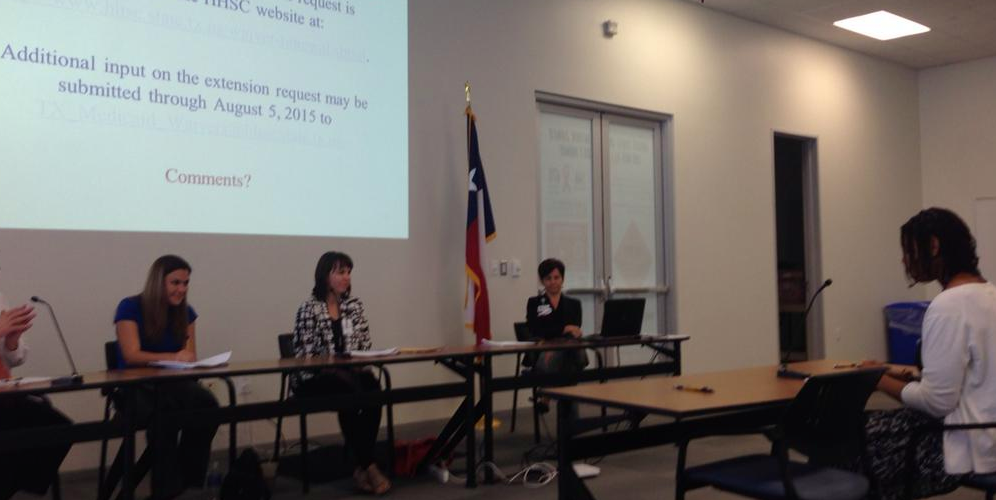
“As a philanthropy, we have the privilege of partnering with community leaders to support community health throughout the Episcopal Diocese of Texas. Our dollars can provide a launching pad for a nascent idea, build the capacity of a long-standing institution, and absorb risk for high-risk but high-reward initiatives. But our dollars cannot—nor should they have to—compensate for a faulty system.
The 1115 waiver provides a lot of good programs, and without its renewal we certainly will not have the funds to cover the costs of uncompensated care throughout the state. But systems are more important and more sustainable than programs, and coverage expansion gets people into a system of managed care.
Without addressing the fundamental issue of coverage expansion, then any effort to improve Texans’ health—whether by philanthropy, the state, or others—will be inherently inefficient and ineffective. We know the cause of the problem; it’s time to stop treating the symptoms.”
I delivered those words on behalf of EHF to the Texas Health and Human Services Commission at a public hearing on Texas’ pending renewal of the Medicaid 1115 Waiver. Although this meeting took place in July, the message continues to resonate—not just with me, and not only at EHF. It’s a sentiment I’ve heard numerous times, the mantra of the frustrated denizens of the so-called third sector: philanthropic dollars are no substitute for good policy.
Distinct sectors with different responsibilities and interests, government and philanthropy are interconnected nonetheless. When interests of the two sectors intersect, there is benefit to be yielded from leveraging the strengths and resources of each to complement one another. Innovative funding mechanisms, such as Social Impact Bonds, are one example. By having organizations with more capacity and flexibility to absorb financial risk front the cost of program implementation, government only pays once success has been met.
However, the two sectors also can inhibit one another, even when their interests align. In the case of health coverage expansion, EHF’s research centered on the Affordable Care Act and the uninsured across Texas is clear on what Texans stand to gain through its adoption, and what we stand to lose from its continued rejection. Denying expansion presumes that philanthropy and non-profits have the capacity to fill the resultant gaps—but to what end? Who is best served by expending philanthropic resources to address a task for which there is a system better suited to accomplish the goal? Such inefficiency stymies our progression toward better community health, and keeps us struggling to maintain our current insufficient systems. Philanthropic efforts are ultimately constrained or amplified by policy decisions.
Government is not beholden to philanthropy; likewise, philanthropy is not an arm of government. However, both entities have an obligation to the people and communities they serve. At that intersection, it behooves both to consider the implications of their actions. In the case of health coverage expansion, government, not philanthropy, holds the key to system change. If government does its part, philanthropy can come alongside and amplify the impact.
